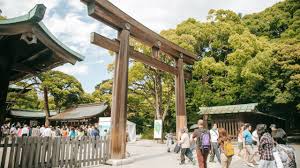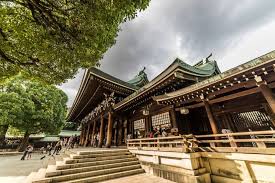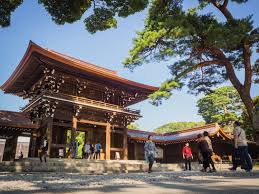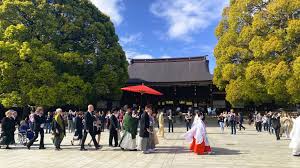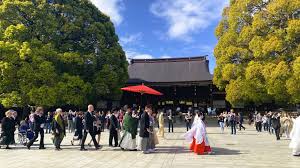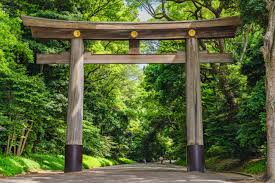Description
The Meiji Jingu Shrine is one of Tokyo’s most significant Shinto shrines, dedicated to Emperor Meiji and Empress Shōken. Completed in 1920, it was built to honor their contributions to Japan’s modernization during the late 19th and early 20th centuries. Nestled within a sprawling forest of over 100,000 trees, the shrine provides a serene retreat from the bustling city, symbolizing harmony between nature and spirituality. The massive torii gates at the entrances mark the transition from the urban world to the sacred grounds.
The shrine complex features traditional Shinto architecture, with the main buildings reconstructed in 1958 after being destroyed during World War II. Visitors often come to offer prayers, write wishes on wooden plaques called ema, or purchase charms for good fortune. Seasonal festivals and Shinto ceremonies are regularly held here, and it’s also a popular site for traditional Japanese weddings, where visitors may glimpse brides in exquisite white kimono walking through the courtyard.
Beyond its spiritual role, Meiji Jingu is also a cultural landmark. The surrounding Meiji Jingu Forest, an artificial yet carefully planned woodland, creates a tranquil atmosphere perfect for walking and reflection. Located next to Harajuku and Yoyogi Park, the shrine is easily accessible yet feels worlds away from Tokyo’s modern energy. It remains a place where both locals and travelers can connect with Japan’s traditions, history, and deep reverence for nature.
Location
-
1-1 Yoyogikamizonocho, Shibuya, Tokyo, Japan

